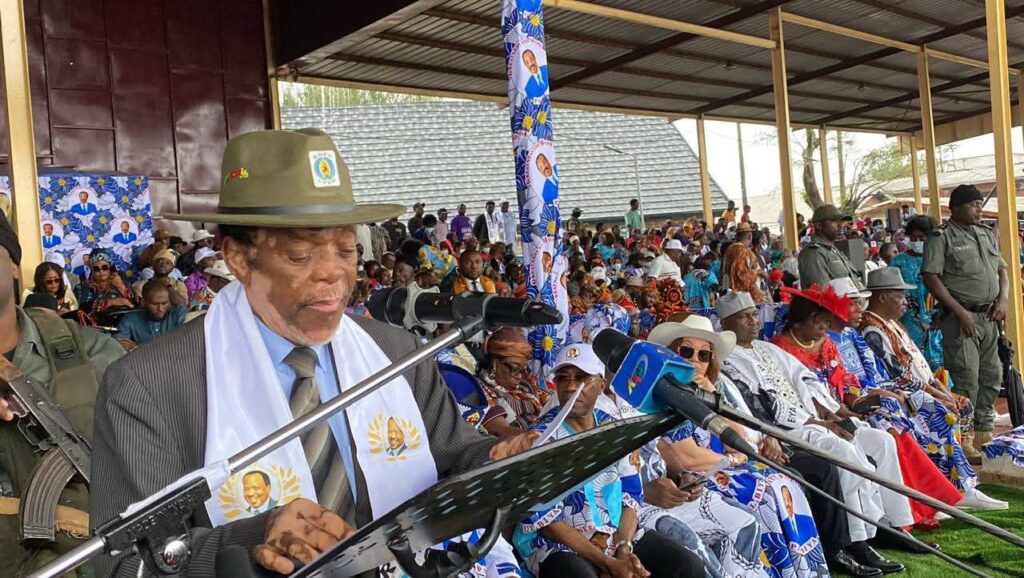The ruling Cameroon People’s Democratic Movement (CPDM) took its campaign trail to Bamenda, the capital of the North West Region, on Sunday October 5, 2025, with a rally staged at the Commercial Avenue Grandstand. The event was led by Jean Nkuete, the party’s Secretary General and national campaign coordinator for President Paul Biya, who is seeking to renew his mandate in the October 12 presidential election.
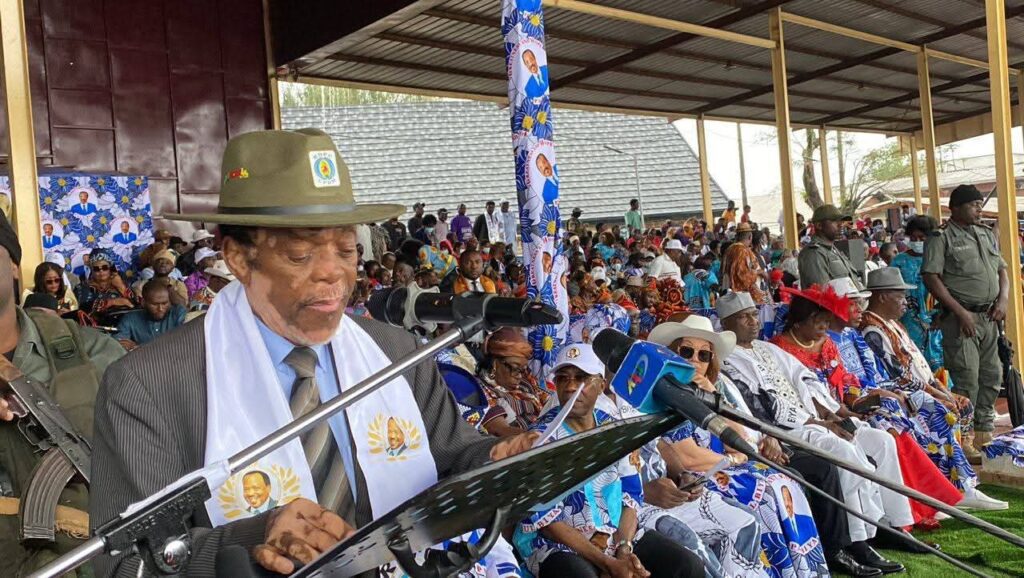
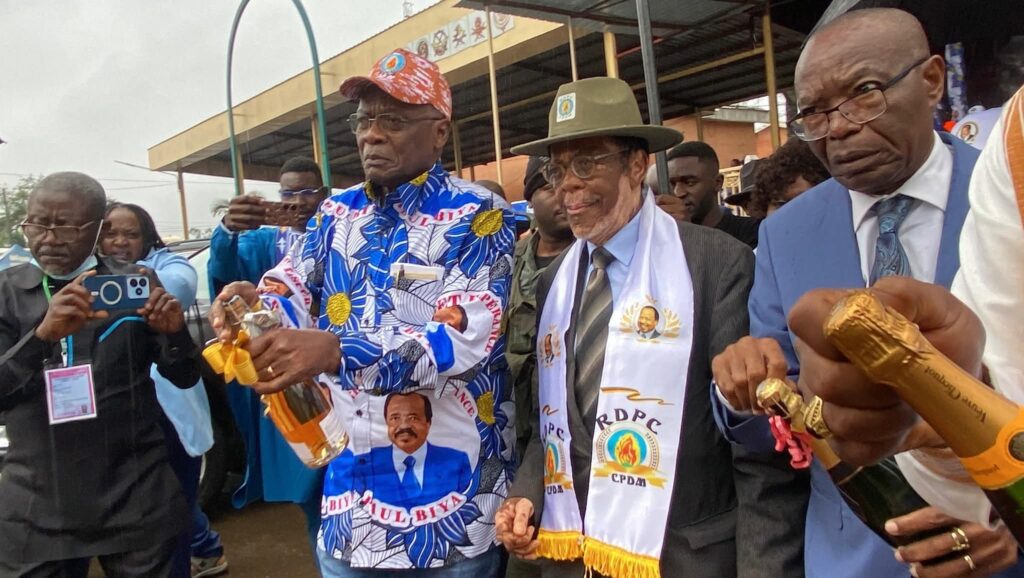
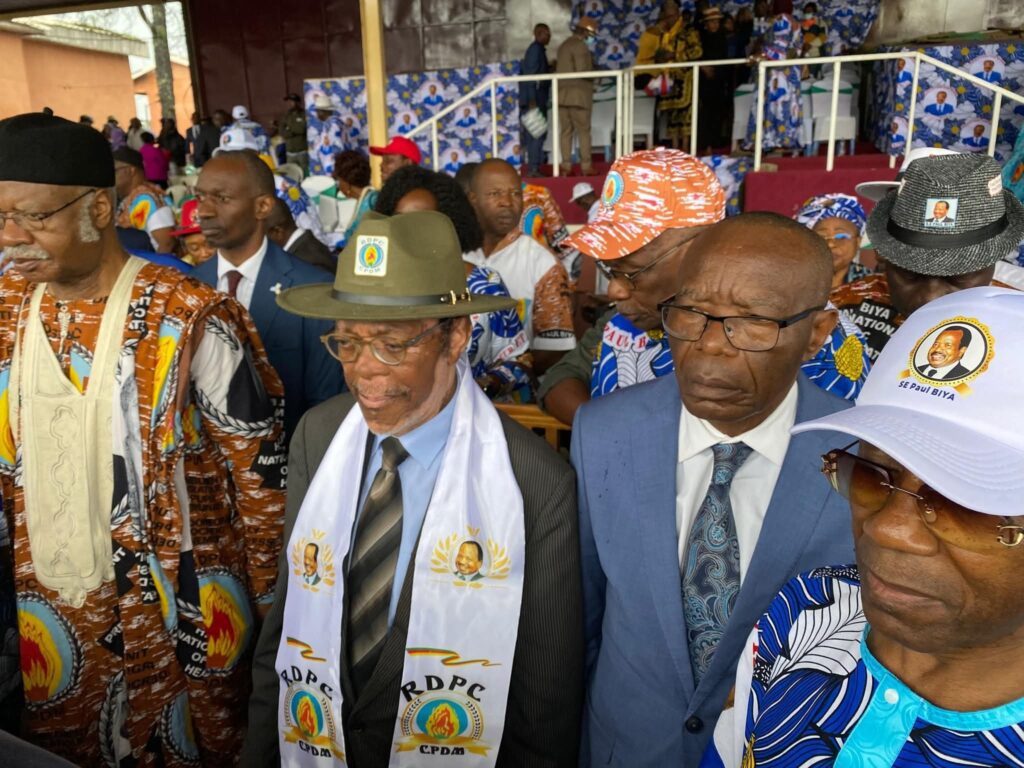
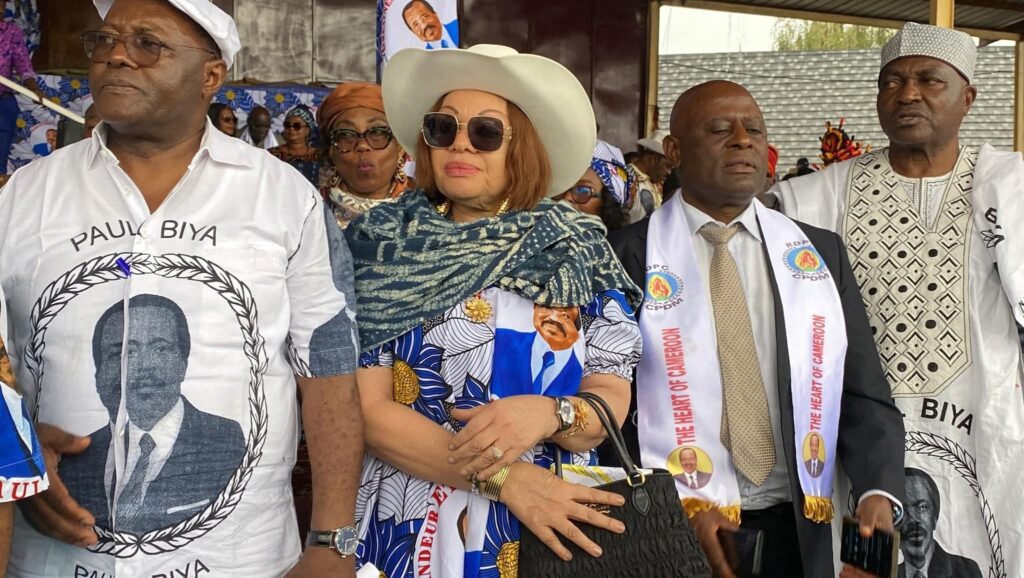
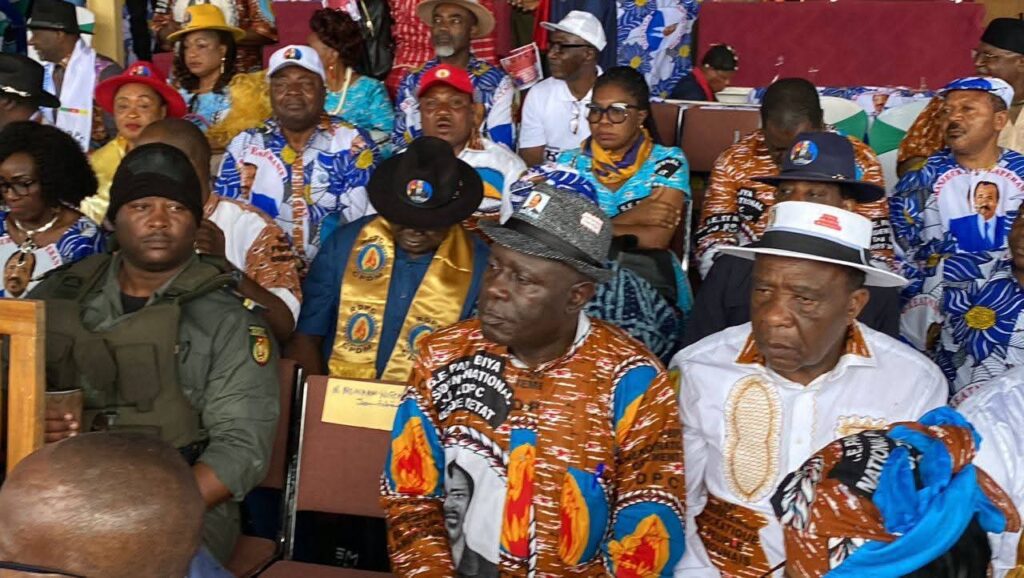
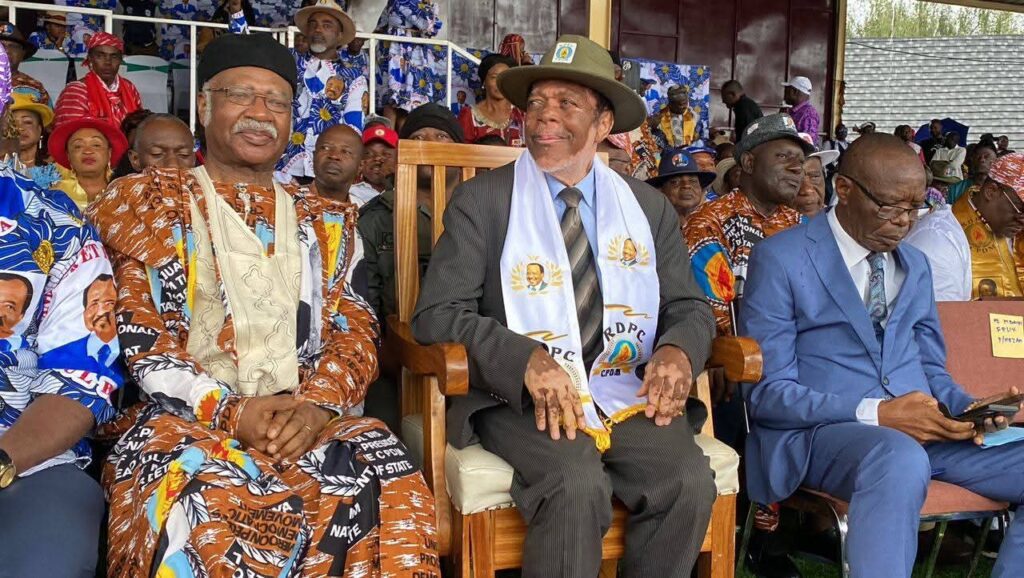
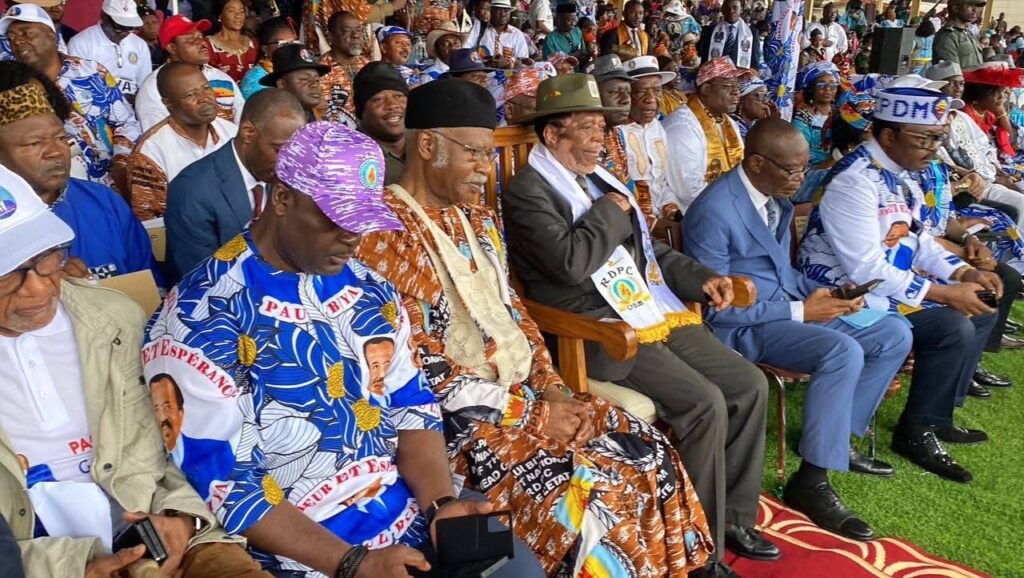
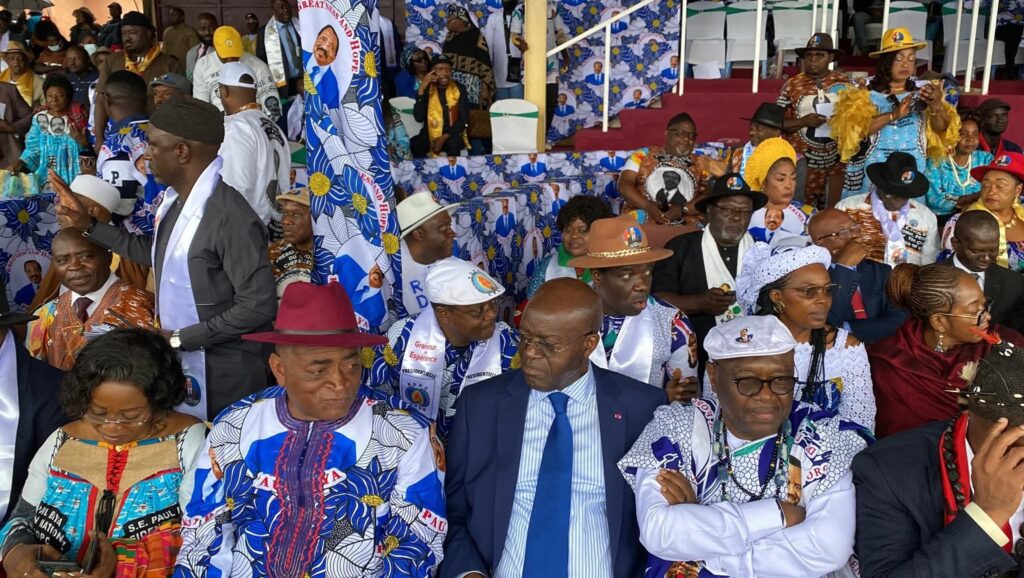
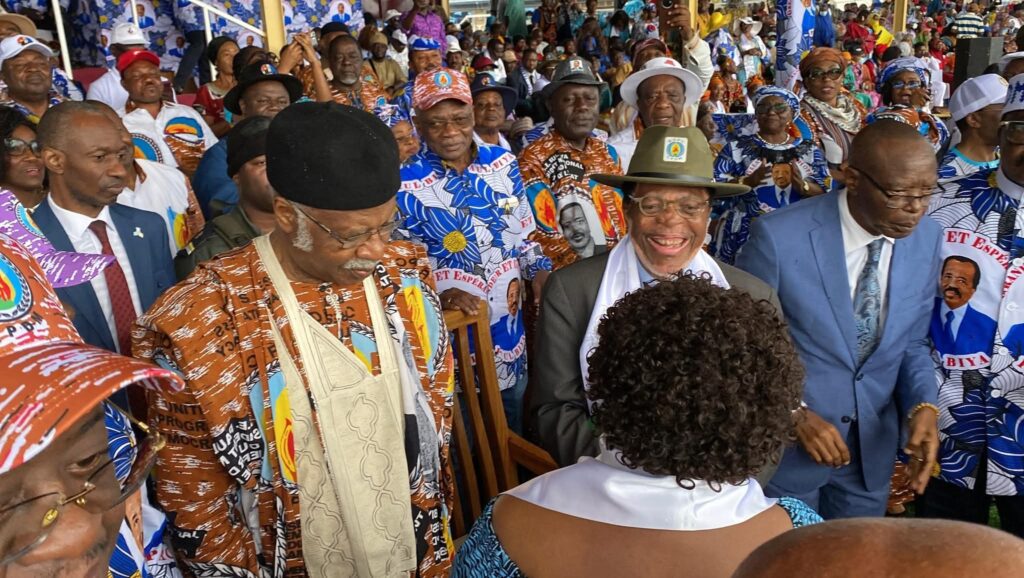
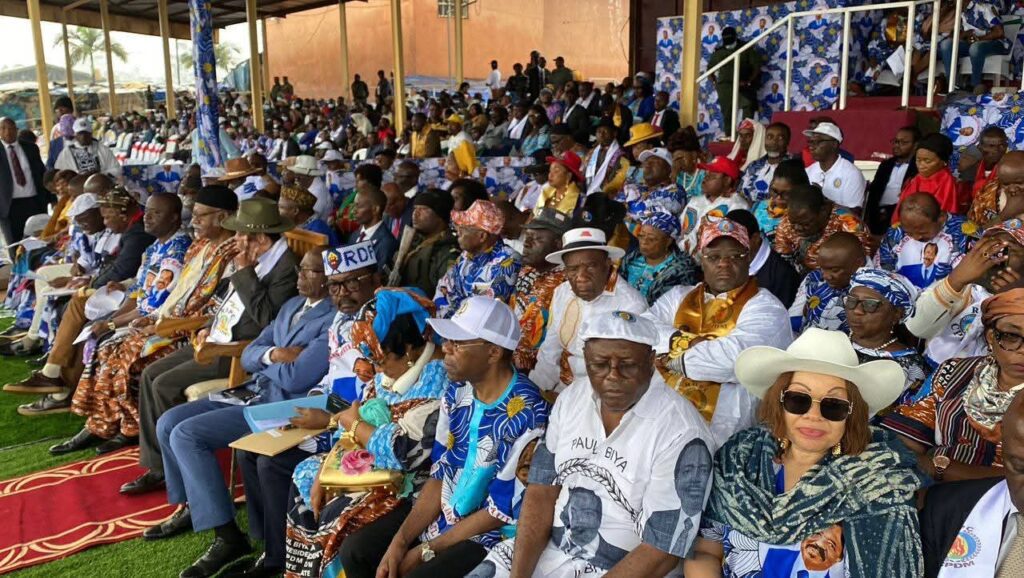
Addressing party militants and sympathizers, Nkuete delivered the official message of “ Greatness and Hope,” positioning it as the guiding vision for the Head of State’s future mandate. He underscored that the campaign was anchored on promises of national development, job creation, and stability, themes aimed at reassuring a region still scarred by years of unrest.
“The future mandate is anchored in Greatness and Hope,” Nkuete declared, urging Cameroonians to remain steadfast in their faith in the ruling party’s vision.
Regional Voices and Strategy Shifts
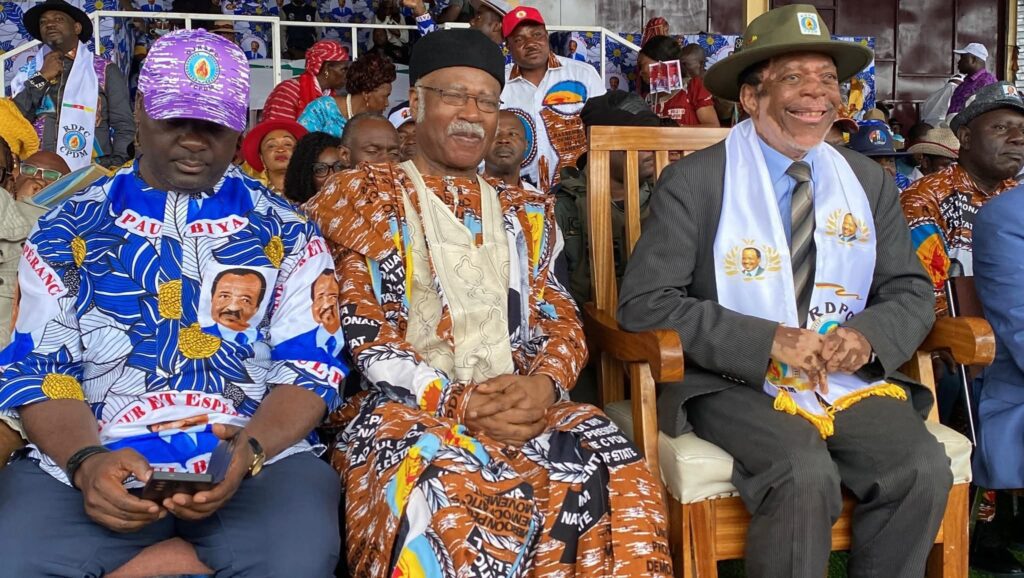
The North West campaign was further bolstered by regional leaders, including Philemon Yang, former Prime Minister and current political heavyweight. Yang acknowledged the challenges of mobilizing in the region, where insecurity and mistrust have complicated political engagement. He hinted at a shift in campaign tactics, noting a move from large-scale rallies to targeted outreach and greater reliance on new media platforms, in what some observers interpreted as a cautious admission of the risks tied to physical gatherings.
Rhetoric and Reality
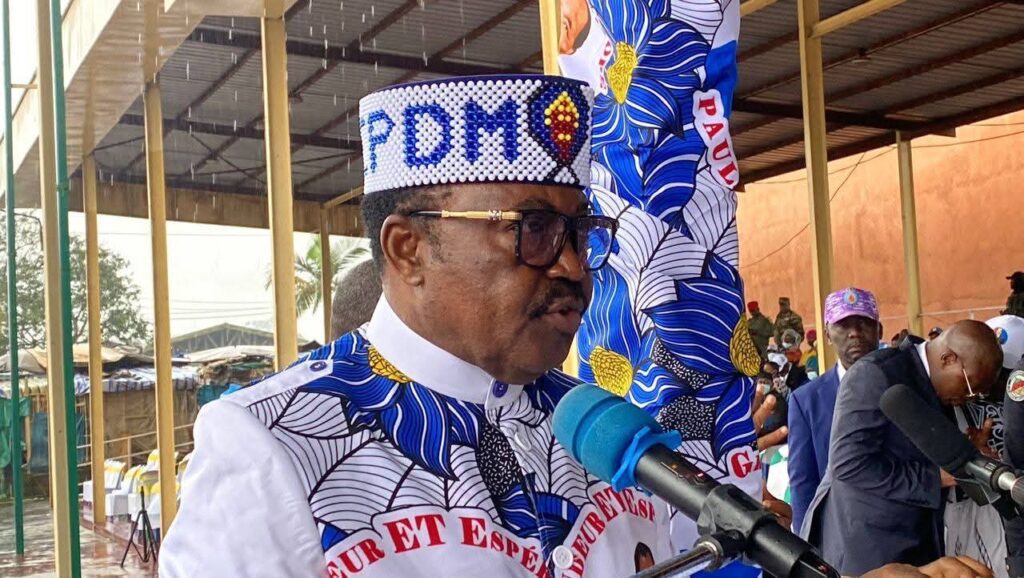
Also taking the podium was Minister Felix Mbayu, who mounted an impassioned defense of the ruling party’s track record. His remarks blended historical reminders of the CPDM’s legacy with assertive rebuttals of opposition criticism. However, analysts noted that his rhetoric often appeared detached from the current security and socio-economic realities faced by ordinary citizens in the Anglophone regions.
Despite the speeches projecting confidence, the atmosphere of the Bamenda rally revealed an underlying tension. Security forces maintained a heavy presence around the venue, underscoring the ruling party’s dependence on state machinery to ensure the event’s success. For many, the optics reflected less of spontaneous enthusiasm and more of calculated control, highlighting the CPDM’s delicate balancing act between projecting stability and grappling with limited grassroots support in conflict-affected zones.
The Road Ahead
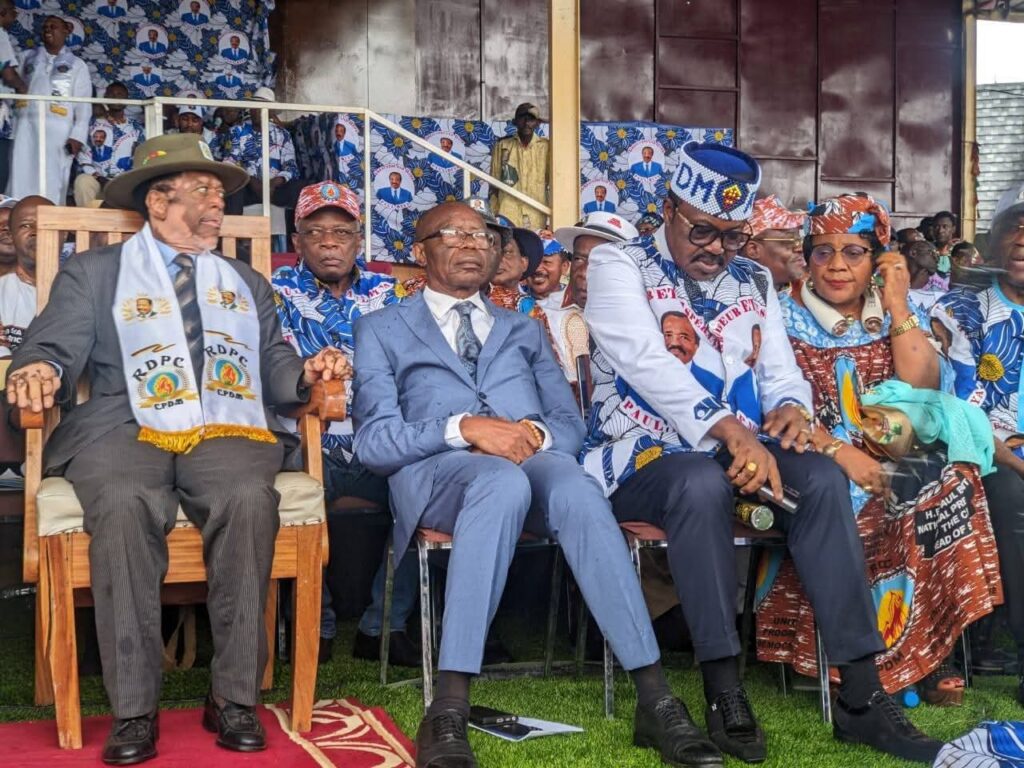
As the campaign season intensifies, the Bamenda rally illustrated both the strengths and vulnerabilities of the CPDM’s approach. The message of unity, development, and hope remains central to its narrative, but the effectiveness of that message in regions weighed down by insecurity and skepticism is yet to be tested at the polls.
For now, the CPDM’s North West outing has sown its seeds of stability—whether they grow into genuine trust and national cohesion will depend on how far promises translate into realities on the ground.

